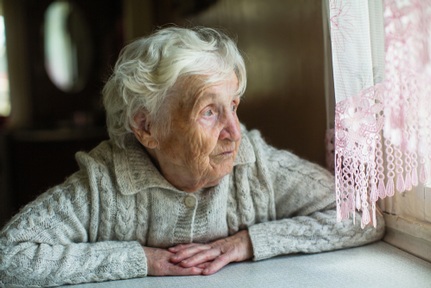Care workers need training to spot cases of dementia and domestic abuse
Academics are calling for more training for health and care workers so they know how to respond to and identify victims in cases of dementia and domestic abuse.

Rebecca Zerk, who works for the Dewis Choice Initiative and Sarah Wydall, senior lecturer in law and criminology at Aberystwyth University have carried out research finding domestic abuse in later life is ‘ignored, invisible and overlooked’.
They have found that dementia and domestic abuse can coexist in many different relationships, including the carer being abusive or the older person with dementia being abusive towards the carer.
Writing in The Conversation, they say ‘dementia can result in a lack of inhibition. So whereas previously a victim-survivor may have deliberately hidden their abuse from people, having developed dementia they may talk openly about their experiences, causing a perpetrator to be fearful of public exposure or prosecution.
‘In one case, the abusive husband behaved in a hostile and aggressive manner towards anyone who entered the family home as a tactic to discourage visitors and isolate the victim.’
People with dementia can often experience a reduction in social contact as friends, family and acquaintances withdraw due to the disease, increasing their vulnerability to physical, financial, sexual and psychological abuse.
“We also discovered that when a perpetrator becomes a carer for a partner or family member with dementia they can feel extremely resentful that their own needs are no longer prioritised. This can lead to them trying to gain control through manipulating family members, friends and professionals.
“On the other hand, in situations where it is the perpetrator who has dementia, the risk of harm can significantly increase, particularly if the victim-survivor is their primary carer. Providing intimate care means close physical contact, making it harder for victim-survivors to keep themselves safe,” say Ms Zerk and Ms Wydall.
Even in previously healthy relationships, a person living with dementia can begin to behave abusively, according to the academics.
“We observed this in one of our case studies, where an elderly women living with dementia become abusive towards her husband as a direct result of her condition. He told us:
‘She’s not always been like this you know. She’s always been very religious, a loving person, not argumentative. When it comes to her medication, she will be pacing about the house all night, demanding I give it to her. I try and explain [that she’s already taken it] but she gets frustrated and angry, and one time she threatened me with the scissors. It’s not like her but she gets confused and agitated.’”
The pair who carry out their research at Aberystwyth University’s Centre for Age, Gender and Social Justice have found that domestic abuse is often overlooked or seen as one-off and treated as unintentional harm or neglect.
Health and social care professionals say they feel “uncomfortable” referring people to domestic abuse agencies due to fears it could exacerbate problems within families struggling to cope with the impact of dementia. Whereas domestic abuse experts say they have a lack of understanding of dementia particularly in regards to safeguarding.
“It seems clear then, that a closer partnership between domestic abuse specialists and health and social care is required. This should involve a significant improvement in practice and policy to recognise and tackle the coexistence of dementia and domestic abuse – so that society is better placed to protect victim-survivors of all ages,” say Ms Zerk and Ms Wydall.
Latest News
 29-Jul-24
Dementia Bus gives carehome.co.uk staff insight into life with dementia
29-Jul-24
Dementia Bus gives carehome.co.uk staff insight into life with dementia
 27-Jul-23
UK's top home care agencies in 2023 revealed
27-Jul-23
UK's top home care agencies in 2023 revealed
 30-Nov-22
A quarter of older people keep their falls secret from family
30-Nov-22
A quarter of older people keep their falls secret from family
 29-Nov-22
'Covid-19 has not gone away' say terminally ill
29-Nov-22
'Covid-19 has not gone away' say terminally ill
 28-Nov-22
IT consultant who received poor care opens 'compassionate' home care business
28-Nov-22
IT consultant who received poor care opens 'compassionate' home care business